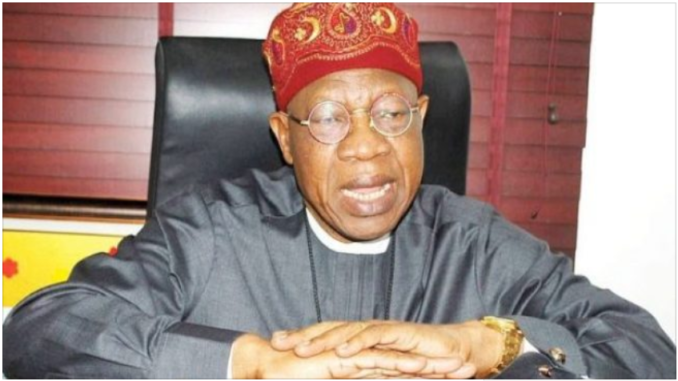
Last week, when the Minister of Information and Culture, Alhaji Lai Mohammed, unveiled the sixth edition of Nigeria Broadcasting Code in Lagos, it was greeted with mixed reactions, as industry players felt bad that government still went ahead to publish contentious sections in the code.
Recall that the writer and Nobel laureate, Prof. Wole Soyinka, had kicked against the Code, saying it will strangulate producers of artwork.
Also, former Director-General of the Nigerian Television Authority (NTA), Prof. Tonnie Iredia, argued that the Code would put fears in the minds of practitioners.
The Professor of Broadcast Management and Media Law told The Guardian that broadcast industry, which is key to people’s enlightenment, “if over-regulated, will not have positive impact.”
According to him, the code is supposed to be a guide and not an instrument for regulation, adding that a broadcast code needs the input of all stakeholders to make it stand the test of time.
He said, “the NBC just rolled out a number of things that it felt should be in the Code and did not hold consultations with the stakeholders like the previous managers of the system did.”
Prof. Ralph Akinfeleye of University of Lagos said the Broadcasting Organisation of Nigeria (BON) participated in the processes leading to eventual amendment, arguing, “the NBC Code is not killing creativity, our culture or business, but protecting the interest of Nigeria as a country.”
On the Digital Switchover (DSO) process, which has been on hold, the minister noted, “the DSO had some setback but very soon we will resume roll out across the country. The industry needs to be restructured. In the coming weeks, you will hear from us on the DSO.”
While reacting to how the regulation of exclusivity could infringe on copyright, the minister said, “the Nigerian Copyright Act makes it mandatory to sell a right to whoever chooses to buy at a price agreed by the parties. The big giants like Netflix, Amazon and others started off by sub-licencing. It is only in Africa that we have monopoly of right.”
Mohammed said the move was to encourage local content, as it was only ensuring what the law already stated. On the issue of advertising debts, Mohammed stressed that the Code would ensure that broadcast industry did not die due to backlog of advert owed. He said, “we would ensure that advertisers pay old debts before moving to other stations to advertise, because if they run all the stations down, then how can the stations pay our debts?
“We have set up the Advertising Measurement Team to ensure this. The advertiser cannot continue to shortchange the content creator and the broadcaster and continue to smile to the bank.
“Whatever we are doing is for the industry’s sustainability. Before now, the NBC created a Family Belt time between 7:00 and 11:00pm, insisting that only local contents were shown at that time, but our people circumvented it,” he said.
They will produce films outside the country and call it local content. “Today, about 75 per cent of the production must be in Nigeria for the content to qualify as local.”
He also disclosed that a fine of N5 million, instead of the N500,000 hitherto charged, as sanction for any broadcast station that disseminates information or material capable of causing hatred and disaffection among Nigerians.
According to him, the amendment and other reforms were necessitated by a presidential directive, in the wake of the 2019 general elections, for an enquiry into the regulatory role of the National Broadcasting Commission (NBC) and the various broadcast stations before, during and after the elections.
He added that the amendments were mostly carried out in the areas of political broadcasting, local content, coverage of emergencies and advertising and anti-competitive behaviour.
“We decided to hike the fine from N500,000 to N5 million to make it difficult for erring broadcast stations to pay. We noticed that some were deliberately flouting the rules because they knew they could easily pay the money and still make some gain.
“Besides, once same infraction is committed thrice, the erring broadcast stations will have their operating licences withdrawn,” he added.
The minister also added that the new Code also contained some changes in the provisions on Exclusivity and Monopoly, especially with the prohibition of exclusive use of rights by broadcasters that are desirous of creating monopolies and holding the entire market to themselves.
He expressed the belief that the amendments would go a long way in boosting local content and local industry due to laws prohibiting exclusive use of rights by broadcasters, who intend to create monopolies, and hold the entire market to themselves.
According to him, “this antitrust provision will boost local content and local industry due to laws prohibiting exclusive use of rights by broadcasters, who intend to create monopolies and hold the entire market to themselves. It will encourage open access to premium content.”
In his address, the Acting Director General of NBC, Professor Armstrong Idachaba, said that the revised Code would go a long way in restoring sanity in the nation’s broadcast space, and make the industry sustainable for stakeholders.
END

Be the first to comment